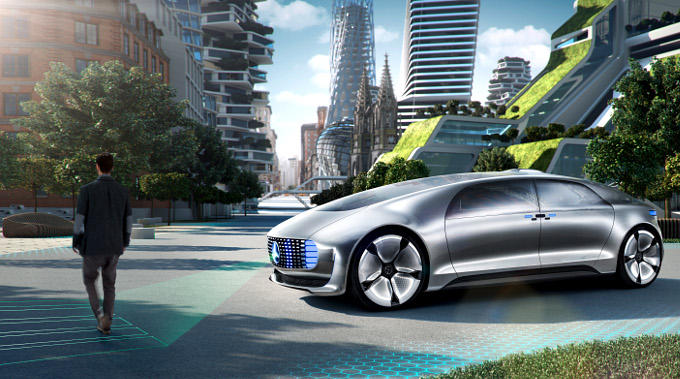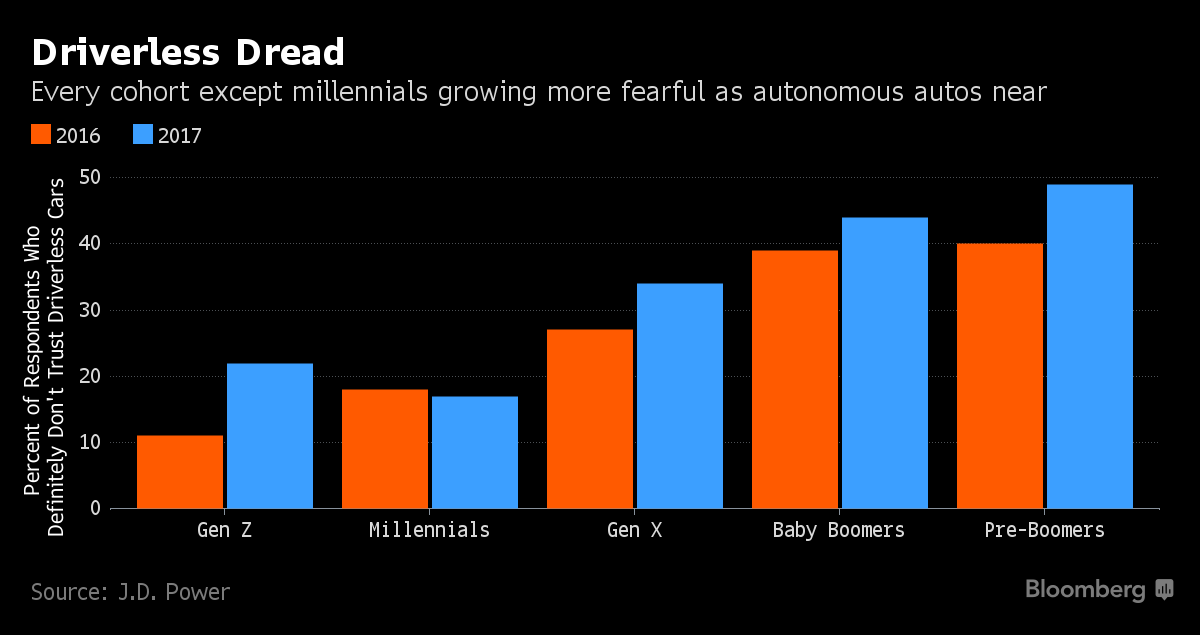The Impact of the Inevitable – Autonomous Driving and Real Estate
Self-driving cars may seem like something out of a sci-fi movie – but the future of autonomous driving is closer than we think. After all, many luxury brands have offered semi-autonomous features for years – cruise control, lane assist, perfect parallel parking, etc. – but is the world ready to hand over the safety of travel to computers?
According to a study conducted by J.D. Power, most age groups are fearful of autonomous autos – except for the tech-savvy millennials. Consumer acceptance will be necessary for self-driving cars to take over the road, but that hasn’t stopped the development of cutting edge technology to take these cars out of the movies and onto the road.
Some may claim that the driverless car is already here – auto giants like Mercedes-Benz, General Motors, BMW and Nissan are all in the beta-testing stages, and have plans to offer self-driving cars by 2020. “The center of gravity in the car business may well have already shifted from Motown to Mountain View, says auto industry analyst Justin Toner. ‘Taken to the extreme, I believe that autonomous cars will eradicate automobile accidents, eliminate traffic and significantly reduce the real estate dedicated to automobiles, freeing land for more productive use,’ Toner says.”
So, how does this effect the future of commercial real estate on a grand scale? Parking will become a significant, if not the biggest factor. Architecture and urban planning will be the most impacted, with parking being removed as an amenity in commercial and multi-family buildings. “According to some estimates, cars are parked and not in use on average 95% of the time. The U.S. is estimated to have more than 800 million parking spaces, nearly four spaces for each vehicle. If people move away from private car ownership to adopt the shared-use model, autonomous cars would likely be on the go more frequently, and require fewer parking spaces. And parking designated for autonomous cars could be located in a central area away from the core downtowns, allowing buildings to devote more space to accommodating people and less to accommodating cars.”
This is great news for architects, commuters, and apartment residents, but investors in parking facilities will take a hit – as driverless vehicles decrease the need for parking spaces, and the values of their properties decline. If that impact is as substantial as anticipated, then those parking facilities could see serious depreciation, and investors could choose to re-develop, dramatically effecting the landscape of downtown cores. New construction of parking garages is already being adapted to include flat floors and exterior ramps so that they can easily be converted to office space, and the elimination of gas stations in prime locations will free up valuable real estate.
The introduction of the autonomous car might also affect one of the largest driving forces when choosing a home, office, or commercial space – location. If travel costs are diminished, and less accidents from human error (and resulting traffic jams) occur – then people may not feel the need to have every amenity at their fingertips.
‘The handwriting is on the wall,’ said Chris Volk, CEO of Store Capital Corp. ‘After all, we’re writing 15-to-20-year leases in a world where must pundits see the inception of driverless cars within five years.’


